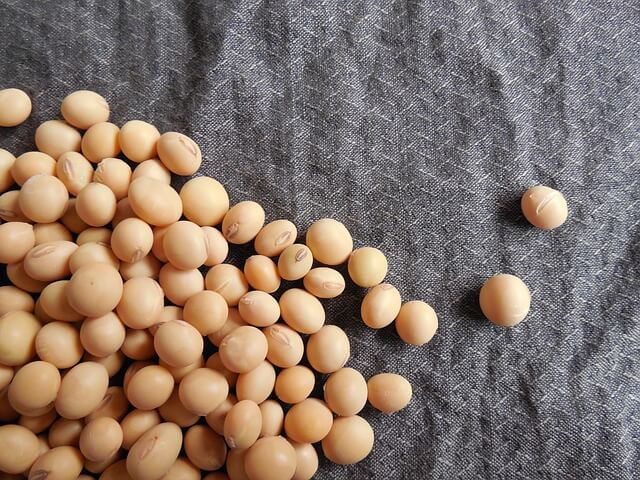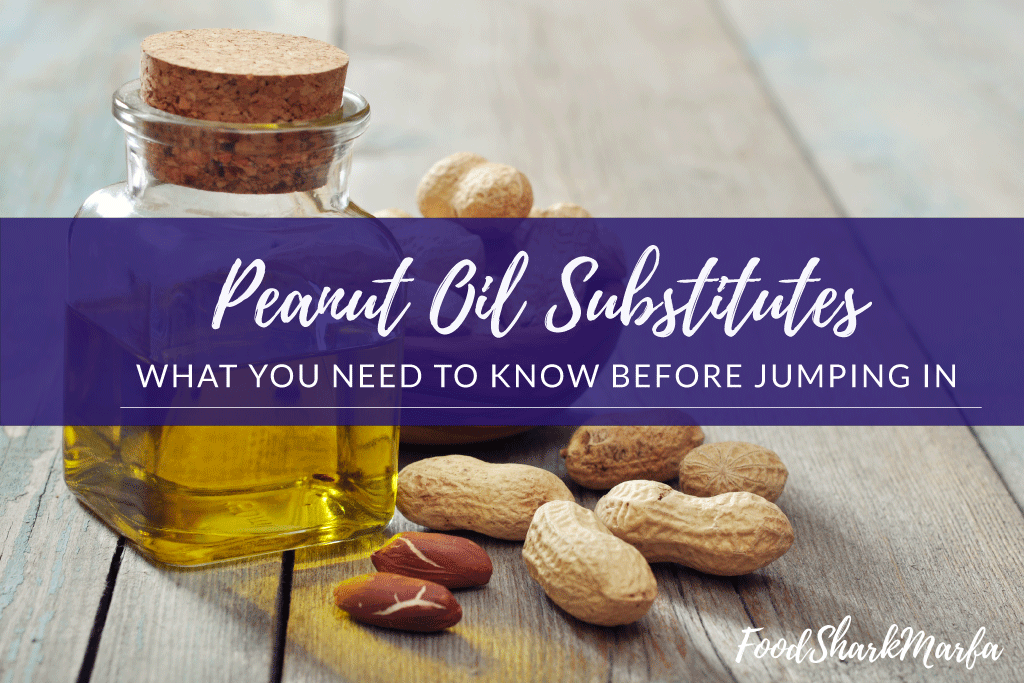The light nutty flavor of peanut oil has never failed to satisfy our tastebuds. It is also a very handy ingredient to use when you are deep-frying. Unlike other oils, it doesn’t take the taste of the other ingredients, which is especially useful when you want your dish to retain its own natural taste. Peanut oil is also popular for its ability to withstand high temperatures, which is perfect for making the outside of the food crispy while retaining the moist center. And to top it all off, peanut oil has a delicious flavor and aroma that can enhance a variety of dishes.
Types of Peanut Oil
Refined Peanut Oil
This oil is much like other processed vegetable oils. It has already been deodorized, bleached, and refined. However, that process can actually be beneficial, because it removes the oil's allergic proteins. This means that this peanut oil is non-allergic, which is great news for allergy sufferers. This type of peanut oil is the most commonly used peanut oil when it comes to US fast-food chains.
100 Percent Peanut Oil
Packaging can be confusing at times, and oil is a prime candidate for such confusion. Some oils are blended or refined without the packaging making it clear, which means that you should always be extra careful to make sure you're getting what you're after.
Many people want their dish to enjoy all of the benefits that peanut oil has to offer, so always double check if the peanut oil that you bought is made from 100 percent pure peanut and that it does not contain any ingredient. You could also check for whether the label reads "100% Peanut oil."
Gourmet Peanut Oil
The gourmet type of peanut oil is very different from the first type, which is the refined peanut oil. Gourmet peanut oil is also classified as speciality oil, and it is completely unrefined.
This oil is perfect when you want the full taste and scent experience from your peanut oil and dish you'll be using it in. Going gourmet really brings out that delicious nutty flavor to its full potential and takes your dish to the next level. Gourmet peanut oil is also a very good source of Phytosterols and Vitamin E. It's usually super easy to find this type of peanut oil in retail stores.
Isn’t Peanut Oil A Source Of Fat?
Nowadays, people everywhere are—rightfully—concerned about consuming foods that are high in fat. In fact, the dietary guidelines of the United States in 2005 advised people to limit their fat intake to around 20 to 35 percent of their overall calories, and that the most of it should be sources of monounsaturated and polyunsaturated fatty acids like vegetable oils, fish, and nuts.
Polyunsaturated fats and monounsaturated fats are also called "better fats" or "good fats." The American Heart Association recommends that people should aim to consume much more of these "good fats" than "bad fats." Avocados, seafood, and seeds are all sources of "good fats."
Health Benefits Of Peanut Oil
Improved Immune System
Peanut oil contains a multi-functional antioxidant named resveratrol that boosts the production of white blood cells in your immune system. With more white blood cells, it is easier for your body to fight off foreign bacteria and viruses in your body. Peanut oil is most effective in treating viral and fungal infections.
Avoid Cognitive Decline
Free radicals are the most common explanation for cognitive impairment. It is the breakdown of the neural pathway in people's brains that can lead to cognitive decline. These breakdowns can lead to cognitive decline by leading to diseases like Alzheimer’s or Dementia. Resveratrol can slow down these symptoms and protect you from the onset of such diseases.
Maintain a Healthy Heart
As mentioned before, peanut oil is a source of monounsaturated fatty acids. These fatty acids help in increasing the number of HDLs, also known as "good cholesterol", in the blood. Having a higher level of good cholesterol than bad cholesterol makes your heart healthy by avoiding strokes and other heart diseases.
Attain Beautiful Skin
Vegetable oils like peanut oil are well-known as a rich source of vitamin E. Vitamin E is very important in keeping the skin healthy. It works by eliminating the effects of free radicals in our skin.
The product of those effects are blemishes, wrinkles, and other premature aging signs. In achieving healthy, glowing, and young-looking skin, the vitamin E that peanut oil contains is an essential vitamin.
Regulate Blood Pressure
As mentioned above, resveratrol is a multi-functioning antioxidant, and it also contributes to the important function of keeping your blood pressure normal.
Resveratrol interacts with the many different kinds of hormones that can affect your blood vessels. As a result, it regulates the effects of these hormones and lowers the blood pressure to decrease the stress on your cardiovascular system.
Reduce Cancer Risk
Other than resveratrol, peanut oil is also rich in various polyphenol antioxidants. These antioxidants help in preventing a plethora of diseases, including cancer. It eliminates free radicals, which are by-products of the cells undergoing metabolism, and these free radicals can cause such diseases.
Studies have shown that consuming vegetable oils that is rich in resveratrol can lower the risk of suffering from cancer, and as peanut oil is high in resveratrol, it can be a tasty way to keep cancer at bay.
What If I’m Allergic To Peanuts?
Studies have shown that refined peanut oil is not harmful to those who are sensitive to peanuts. Refined peanut oil is free from any allergic proteins, which makes it non-allergic.
In fact, an experiment has been conducted in which 60 people who are severely allergic to peanuts tested their response to refined peanut oil. The tests concluded that refined oil is completely safe for those who are allergic to peanuts.
Peanut Oil Alternatives
Safflower Oil

Safflower is a well-known oil that is commonly used for cooking, and is derived from safflower plant seeds. These plants can be orange, bright red, or yellow in color. It has a spiny branch that can hold about 5 blooms. Each bloom has around 20-25 seeds, and these seeds will be processed and crushed to extract the safflower oil to be used for cooking.
Safflower oil has a neutral flavor which is very different from peanut oil. However, despite the differences, safflower oil—especially monounsaturated safflower oil—can still be a good substitute for peanut oil. This is because both are low in saturated fats and have a high amount of oleic acid. Some people even say that safflower is a better option when cooking at high temperature than olive oil because safflower oil has an amazingly high smoke point of 266 degree Celsius, which makes it a very stable oil.
It is very important to keep in mind that monounsaturated safflower oil is a much better option than the polyunsaturated variety. Though it can be great for salads and other cold dishes, too much polyunsaturated fat can be harmful when consumed regularly. Safflower oil could be used for: sautéing, salad drizzle, deep-fry, searing food, and stir-frying. 32 ounce of safflower oil is currently sitting around 7.5 US dollars today.
Health Benefits of Safflower Oil
There have been multiple studies on how safflower oil can be beneficial to one's health in various ways, such as weight loss, skin care, and many more. Below are the following benefits of safflower oil:
- Regulates Blood Sugar Levels. Safflower oil's high unsaturated fat content helps the body to control its blood glucose level. It also has a beneficial effect on the body's insulin secretion and insulin resistance.
- Treats Inflammation. Safflower oil also contains properties that are anti-inflammatory, which is highly beneficial for your health. This could help in treating conditions like heart disease and diabetes.
- Aids Skin Care. Safflower oil can also be used to treat inflamed or dry skin. Simply apply it to your face or body to give your skin a smooth and soft appearance. This is why many skin care and cosmetic products use safflower oil as an ingredient.
- Low Cholesterol, Improves Heart Health. There have been studies on how unsaturated fats can lower "bad cholesterol", also known as LDLs, in the blood. Having also a high amount of such cholesterol in the body could increase the chances of suffering from heart diseases.
Sunflower Oil

Sunflower oil, which is extracted from sunflower seeds, is another great substitute for peanut oil. It is free from fat, and it also contains a very good amount of oleic acid. 1 cup of sunflower oil is more than enough to replace a cup serving of peanut oil. Another amazing characteristic of this oil is its decent long storage life, which is a must-have attribute of great cooking oil.
This oil is also considered as one of the healthiest substitutes for peanut oil. Other than its high oleic content and zero-fat content, it is also a good source of vitamin E. In fact, has a number of health benefits because of these characteristics. Moreover, semi-refined sunflower oil is also quite useful for cooking because of its high smoke point, which is around 232 degree Celsius, making it a pretty stable cooking oil.
There are two types of sunflower seeds that you should know about when buying sunflower seeds and oil. First is the confection sunflower seed, and the second is the non-oil sunflower seed. Their main difference is in their edibility. Confection sunflower seeds are fit for eating and can be used for extracting sunflower oil. Non-oil sunflower seeds, on the other hand, are used only for animal food, and are not fit to be eaten by humans.
There are also two types of sunflower oil: cold pressed and refined. Refined sunflower oil has a pale yellow color, whereas the cold-pressed sunflower oil is amber and has a pleasant mild taste. Sunflower oil is a very popular oil to the point that it is even chosen over safflower, corn, olive, and canola oils when used for cooking. Other than that, it can also be used for cosmetics due to its smoothing texture and long storage life.
Health Benefits of Sunflower Oil
- Helps prevent arthritis
- Lowers the risk of cancer with the help of carotenoids
- Fights off free radicals through vitamin E
- Protects infants from infections
- Prevents heart diseases due to selenium
- Maintains a healthy nervous system because of vitamin B
- Repairs body damage through proteins, hormones, and enzymes
- Regulates cholesterol level
- Protects the body from colon cancer and asthma through vitamin E
- Boosts cardiovascular system with the help of vitamin E and low amount of saturated fats
Soybean Oil

Soybean oil is another well-known vegetable oil. It is produced by extracting the oil from the seeds of soybeans, and it has a faint green or dark yellow color. It is believed to have firstly been used in the half of the eastern part of North China around 11th BC. It is also a part of the five main staple plant foods of China; the others are wheat, rice, barley, and millet. There have also been studies that suggest it was produced in China after their war with Japan in 1894-1895, which was also the time when Japan used soybean oil cake as fertilizers for importation.
In 1908, soybeans began being imported to Europe, though Europe had previously discovered them in 1712. In fact, an old German piece of writing talks of soybeans as early as 1712. However, the first literary text in the US that used the name "soybean" was in 1804. In the US, it was first used as a forage crops rather than for seed extraction.
In the present day, the average weight of edible oils consumed in America is sitting at 28 billion pounds per year—and soybean holds a staggering 65 percent of this figure.
The two largest costumers of soybean oils from the US are Mexico and Korea. However, about 50 percent of the total soybean oils in the US have already undergone to a process called hydrogenation. This is because the unhydrogenated oil is quite unstable and not yet safe to be used in making food. Hydrogenated soybean oil contains trans fat which can lead to health problems.
Health Benefits of Soybean Oil
- Boosts your memory and helps in avoiding Alzheimer's through vitamin K, omega-3 and omega fatty acids.
- Soybean oil contains more good fats than bad fats.
- Protects skin against Ultraviolet B rays and free radical inflammations. It also nourishes the skin with the help of antioxidants, vitamins, and linolenic acid.
- Soybean oil is a rich source of isoflavones that help the bone to develop and prevent bone diseases.
- Regulates the body’s bad cholesterol level to maintain a healthy heart.
- Soybean oil produces more amino acids and molecules for hair fibers to avoid balding, hair loss, and weak hair strands.
Corn Oil
Corn oil, also known as maize oil, comes from the corn germ extract. It is usually used for cooking, in which it is one of the essential ingredients in making margarine and some processed foods. It is one of the cheapest forms of vegetable oil, but corn is still a crop that is being heavily subsidized in the United States.
Corn oil can also be used in for industrial purposes, specifically for biodiesel as a feedstock, which is currently growing from 2012 until today. This oil is also easy to find almost anywhere. Another great characteristic of this oil is that it doesn't develop a rancid taste. Just like peanut oil, this oil is highly stable, with a very high smoking point of 232 degree Celsius.
One cup of refined corn oil is enough to replace one cup of peanut oil. However, you should remember not to use this oil too regularly, as it contains a large amount of polyunsaturated fat.
Though omega-3 and omega-6 fatty acids are good acids, the ratio of omega-6 to omega-3 in this oil is at 49:1. The ideal ratio is 1:1, which means that it is very unbalanced. Too much discrepancy on this ratio can seriously harm your health and increase the chances of cancers such as prostate and breast cancer.
Health Benefits of Corn Oil
- It can balance the body’s cholesterol level
- It contains both antioxidant and flavonoids, like lutein, to improve eye vision.
- Corn oil has compositions that could help in aiding allergies
- It helps in treating inflammations, headaches, arthritis, and gastrointestinal problems.
- Corn oil also has vitamin E, and is full of essential nutrients to reduce the risk of chronic diseases.
- The tocopherols and antioxidants in corn oil help the skin to fight off infections, blemishes, irritations, wrinkles, and certain skin diseases like psoriasis.
Canola Oil
Canola oil is extracted from edible rapeseed, and it is also known for having a low amount of saturated fat. This is also the reason why it is not as bad for the heart as other oils can be, and it is one of the safest peanut oil substitutes to go with.
Many people find this a good ingredient to have when baking or cooking because it does not have much of a flavor to it. People also loved using canola oil because of its versatility. It is an oil that can handle extremely high temperatures—refined canola oil can handle up to 204 degree Celsius of heat.
In using this as an alternative, you must know the amount of canola oil to replace a cup of peanut oil. For every cup of peanut oil substituted, you will need 1 cup of canola oil. This is a great substitute for peanut oil if you're cooking for someone with peanut allergies.
Canola is also a great choice for healthy non-cooked dishes like salads, as it has a high omega-3 fatty acid content which, as we've mentioned above, is great for your health and will complement your healthy food choices perfectly.
Canola oil can be used in a variety of ways: deep-frying, pan-frying, salad dressing (like ginger dressing), cooking Chinese cuisines, turkey-fryer, greasing pans, stir-frying, and grilling.
Health Benefits of Canola Oil
- High Amount of Good Fats. Canola oil contains a high amount of two essential fatty acids that are important for your health: Alpha-linolenic Acid (ALA) which is an omega-3 fatty acid, and also Linolenic Acid (LA) which is an omega-6 fatty acid. Both of these polyunsaturated fatty acids are responsible for protection against heart diseases, strokes, cognitive deterioration, and helps to lower levels of bad cholesterol.
- It is Cholesterol-Free. High-level of bad cholesterol can clog your arteries, which then increases your risk of heart attacks or stroke.
- It is rich in Vitamin E. 1 serving of canola oil provides you approximately 25 percent of your daily recommended value for Vitamin E. This antioxidant is responsible for protecting the body from free radical damages. It could also help in avoiding memory loss and lessen the risk of heart diseases and cancer.
- Very Low Amount of Bad Fats. In fact, canola oil boasts the lowest level of bad fats of all the vegetable oils.
Conclusion
While the oils we've listed here are great substitutes, it should also be noted that there are two oils that should not be used as an alternative for peanut oil: sesame oil and olive oil. Both of those oils have their own distinct taste, which may clash with your typical peanut oil dishes.
In addition, both of these oils have low smoke points that might cause you some trouble if you're using them for deep-frying. Always keep in mind that no peanut oil substitute will taste exactly like peanut oil, so if that distinct nutty flavor is really important to you, it's okay to stick with what you know!


